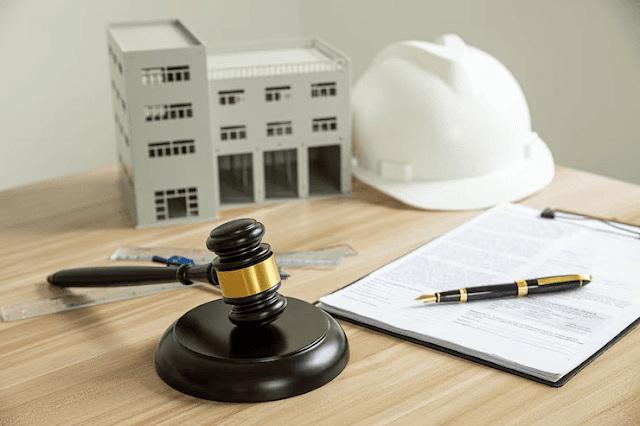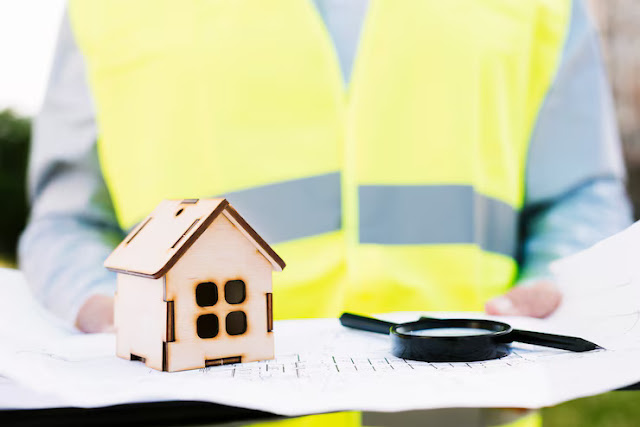The Role of a Construction Defect Attorney in High-Stakes Projects
In the high-risk world of large-scale construction—where projects often involve millions of dollars, complex engineering, and dozens of stakeholders—mistakes or defects can lead to catastrophic financial consequences. When problems arise, the role of a construction defect attorney becomes not only valuable but essential. These legal professionals specialize in navigating the technical, contractual, and regulatory issues that surround construction defect disputes, particularly in large, high-stakes developments like commercial towers, infrastructure builds, and luxury residential complexes.
Whether you are a developer, general contractor, architect, or property owner, engaging a construction defect attorney early in the process can mitigate risk, streamline dispute resolution, and protect your bottom line.
Understanding Construction Defects in Large Projects
Construction defects generally fall into four categories:
- Design Deficiencies – Errors or omissions in architectural or engineering plans that result in unsafe or substandard outcomes.
- Material Deficiencies – The use of inferior or defective building materials that lead to system failures or structural issues.
- Workmanship Deficiencies – Poor installation practices or noncompliance with construction standards.
- Subsurface Conditions – Hidden site problems like unstable soil, inadequate compaction, or water intrusion risks that affect structural integrity.
In high-value projects, even minor defects can compound into major legal battles. A leaking foundation, improperly installed HVAC system, or façade failure could cost millions to repair and potentially lead to lawsuits from tenants, HOAs, or government agencies. This is where a construction defect attorney plays a critical role—not just in defending or prosecuting claims, but in preventing them through proactive legal oversight.
When to Involve a Construction Defect Attorney
While many businesses wait until a defect claim arises to contact a lawyer, involving a construction defect attorney earlier in the project lifecycle can prevent costly legal exposure later. Key stages to consider legal counsel include:
- Contract negotiation and drafting: Crafting strong contracts that allocate liability and define warranty obligations clearly.
- Pre-construction risk assessment: Identifying design or material risks before breaking ground.
- During construction: Monitoring change orders, inspections, and compliance with building codes.
- Post-construction: Handling warranty claims, managing defect notices, and preserving documentation for defense.
Attorneys with experience in large-scale construction understand the nuances of California’s building standards, performance benchmarks, and statutory defect laws—arming clients with an expert ally before defects surface.
How a Construction Defect Attorney Adds Value
1. Risk Allocation and Contract Strategy
A primary role of the attorney is to help draft and review contracts that properly allocate risk among parties—owners, general contractors, subcontractors, and design professionals. In large projects, overlapping scopes of work and joint responsibilities are common, so it’s critical to define who is responsible for what in the event of a defect.
An attorney ensures:
- Warranties are enforceable and appropriate
- Indemnification clauses are clear
- Insurance obligations are well-defined
- Statutory compliance is met (e.g., California’s Right to Repair Act)
2. Investigating and Evaluating Claims
When defects are alleged, a construction defect attorney will coordinate investigations with engineers, forensic specialists, and construction experts. Their job is to determine:
- The cause of the defect
- The scope of necessary repairs
- Liability across multiple parties
- Whether claims fall within the statute of limitations
This investigative role is especially important in large projects where defects can be systemic or hidden—like plumbing failures in high-rise condos or waterproofing breaches in subterranean structures.
3. Defending or Pursuing Legal Claims
Once liability is assessed, the attorney will either defend the accused party or pursue claims against those responsible. Common legal actions include:
- Breach of contract
- Professional negligence
- Breach of warranty
- Strict liability (especially for builders and developers)
They also negotiate settlements, mediate disputes, and, if necessary, litigate in court or arbitration forums. In California, litigation surrounding defects is governed by complex laws that require a skilled and experienced hand.
Why You Need a Construction Lawyer in California Specifically
If you're developing or constructing in California, you face one of the most litigious and regulated construction environments in the country. A knowledgeable construction lawyer in California understands the unique legal landscape, including:
- The Right to Repair Act (SB 800): This statute outlines how homeowners must notify builders of defects and gives builders a right to repair before a lawsuit can proceed.
- Ten-Year Statute of Repose: Under California law, construction defect claims can be filed up to ten years after substantial completion.
- Strict Liability Doctrine: Builders and developers in California can be held strictly liable for certain types of defects, regardless of negligence.
- Prevailing Wage and Labor Codes: Compliance with labor laws can intersect with defect claims when improper labor practices result in substandard work.
The complexities of California law mean out-of-state legal teams often lack the experience to effectively handle defect cases here. An attorney who practices construction law exclusively within the state brings local expertise that can mean the difference between success and costly failure.
Complex Litigation: Multi-Party Coordination and Insurance Recovery
Large construction projects often involve dozens of subcontractors, vendors, design professionals, and insurers. When something goes wrong, the resulting claims can trigger a legal domino effect. One of the core skills of a construction defect attorney is managing multi-party disputes and insurance recovery strategies.
These cases typically require:
- Coordination among multiple defense and plaintiff counsel
- Detailed discovery and expert testimony
- Understanding of commercial general liability (CGL) insurance policies
- Subrogation claims
- Third-party cross-claims and indemnity disputes
An experienced attorney can navigate these layers effectively, pushing for favorable settlements while minimizing disruption to ongoing operations or reputational damage.
Cost Mitigation and Business Continuity
In high-stakes construction projects, time is money—and unresolved disputes can drain both.
Construction defect attorneys not only defend claims but often help businesses implement compliance and quality control programs that minimize future exposure. These may include:
- Routine legal audits of construction practices
- Training sessions for site supervisors
- Contractual updates reflecting new case law or legislation
- Insurance reviews and policy optimization
By embedding legal support into the lifecycle of the project, companies reduce the risk of claims, control insurance premiums, and protect their bottom line.
Conclusion
In high-value construction projects, the stakes are too high to overlook legal risk. From pre-construction contract strategy to post-completion litigation defense, a construction defect attorney is a critical part of your project’s success team. They provide more than just reactive legal services—they are risk managers, compliance advisors, and expert litigators with the technical knowledge to navigate California’s complex construction laws.
And in a legal environment as challenging as California’s, there’s no substitute for working with an experienced construction lawyer in California who understands the local codes, legal precedents, and procedural nuances that govern defect litigation.
The earlier you bring legal expertise into your construction process, the more control you'll have over quality, liability, and cost—ensuring your high-stakes investment stays protected from foundation to finish.



.png)

Comments
Post a Comment